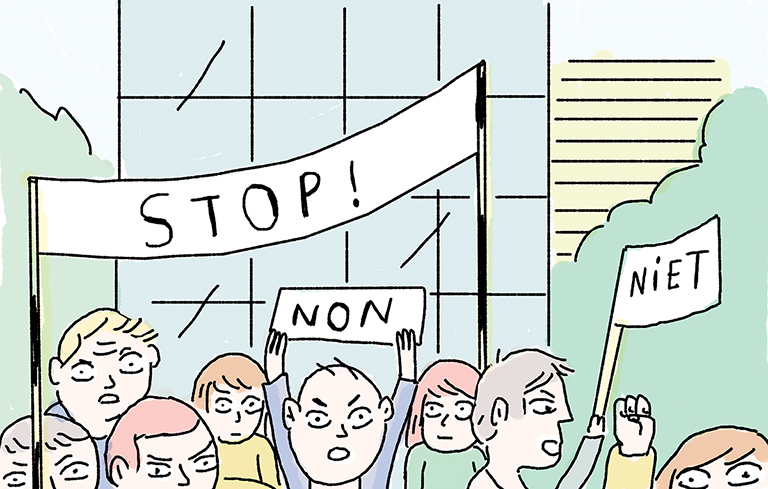
Obstructing traffic during a strike can result in a criminal conviction
In a judgment of 19 October 2021, the Court of Appeal of Liège convicted several activists of a Trade Union for having deliberately obstructed road traffic during a national strike.Following the recent case law of the Court of Cassation, the criminal court has ruled that it is irrelevant whether or not the strikers were aware of the danger caused by their action.

Context
The facts take place on 19 October 2015, in the context of a national strike initiated by a Trade Union in reaction to measures adopted by the Federal Government at the time.
On this occasion, more than a hundred activists set up picket lines on the Cheratte bridge (located in the Liège region), causing nearly 400 km of traffic jams and significant material damage.
Several strikers were prosecuted for the offence of "malicious obstruction of traffic" (Article 406 of the Criminal Code). Convicted at first instance, the defendants appeal this decision.
Decision of the Court of Appeal
Like any criminal offense, malicious obstruction of traffic requires two elements:
- A material element, namely the obstruction of road traffic on the public highway, endangering users.
The Court notes that the activists are responsible - if only by omission - for a complete and persistent blockage of traffic for several hours, causing a dangerous situation.
- A moral element: the Court of Appeal states that it is irrelevant whether the activists knew (or should have known) that their action would involve a dangerous situation.
It is sufficient to establish that the perpetrators voluntarily obstructed road traffic, as was the case in this instance. The criminal court follows in this respect a teaching of the Court of Cassation.
Finally, the Court examined the justification put forward by the defendants, based on the right to strike and to demonstrate, protected by Articles 10 and 11 of the ECHR. The Court recalls that this is not an absolute right: it may be limited in the public interest, in particular to protect public safety and personal integrity. The proportionate application of a penal provision does not infringe the right to strike, the Court concludes.
The perpetrators are given suspended prison sentences and fines.
What to remember?
During a strike action, participants may not deliberately obstruct road traffic and thus cause danger to road users. Such action may result in a criminal conviction, even if it is not established that they intended to cause the danger.
In so far as it is aimed at protecting the general interest and is proportionate to that objective, this criminal sanction does not constitute an unlawful interference with the right to strike.
Source: Liège Court of Appeal (18e ch.), 19 October 2021, R.G. n° 2021/CO/173, unpublished.
